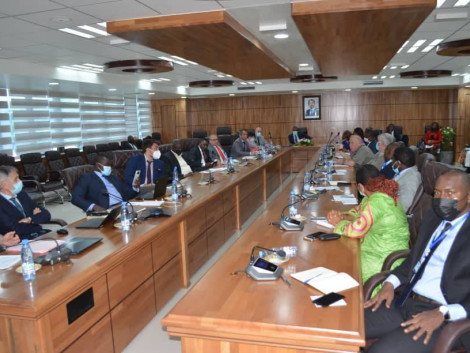

News | 11.06.2021
As the Forestry Ministers of CEMAC member countries decided to ban the export of logs on January 1, 2022 and to harmonize forestry taxation accordingly, a national workshop was organized in Cameroon to discuss forestry taxation.

In Cameroon, the forest-wood sector is a key sector of the economy: it is the second largest contributor to GDP, with 60 billion CFA francs in tax revenue per year. Nevertheless, due to illegal logging, it does not reach its real fiscal potential. It is, therefore, necessary to implement measures to encourage the actors of the sector towards responsible management of forest resources.
The objective of this event was to discuss the fiscal consequences of banning log exports, based in particular on research results recently published by ITTO and the World Bank, as well as on the experience of Gabon, which banned log exports in 2010. Its tax revenues fall by 75% in the first few years following the ban. In 2020, Gabon developed a bonus/malus system to implement a green tax incentive: a zoning system has been implemented, identifying concessions with forest certification, those with legality certificates, and those that are not certified. Each zone has a different tax rate, from the most advantageous for certified sustainable management zones to the least advantageous for non-certified zones.
This first national workshop thus began to reflect on fiscal measures in Cameroon that would counter the negative effects of the log export ban. The stakes are high since log exports currently represent more than 80% of domestic forestry revenues. However, it is not strategic to consider deferring losses through increased taxation of processed wood products, as these would lose their regional competitiveness.
The following avenues have been suggested as being the most likely to offset the tax losses associated with the log export ban:
Avenue 1: increase the tax base by formalizing the informal sector, which to date has not been included in the tax system.
Avenue 2: increase the recovery rate through a tax incentive (bonus/malus)
Others avenues: industrialize the sector, create Special Economic Zones, invest in training for the timber industry.
Download the report of the workshop (in French).
For more details about incentives, click here.
tag(s) :